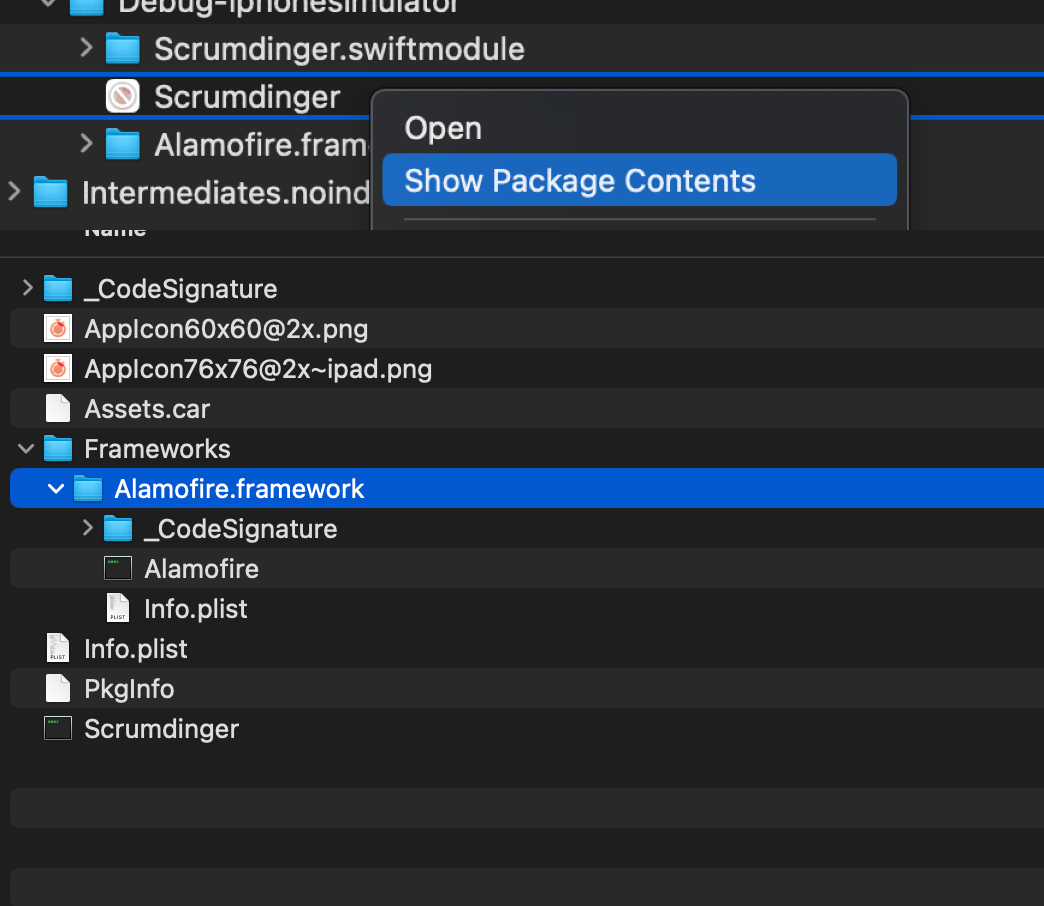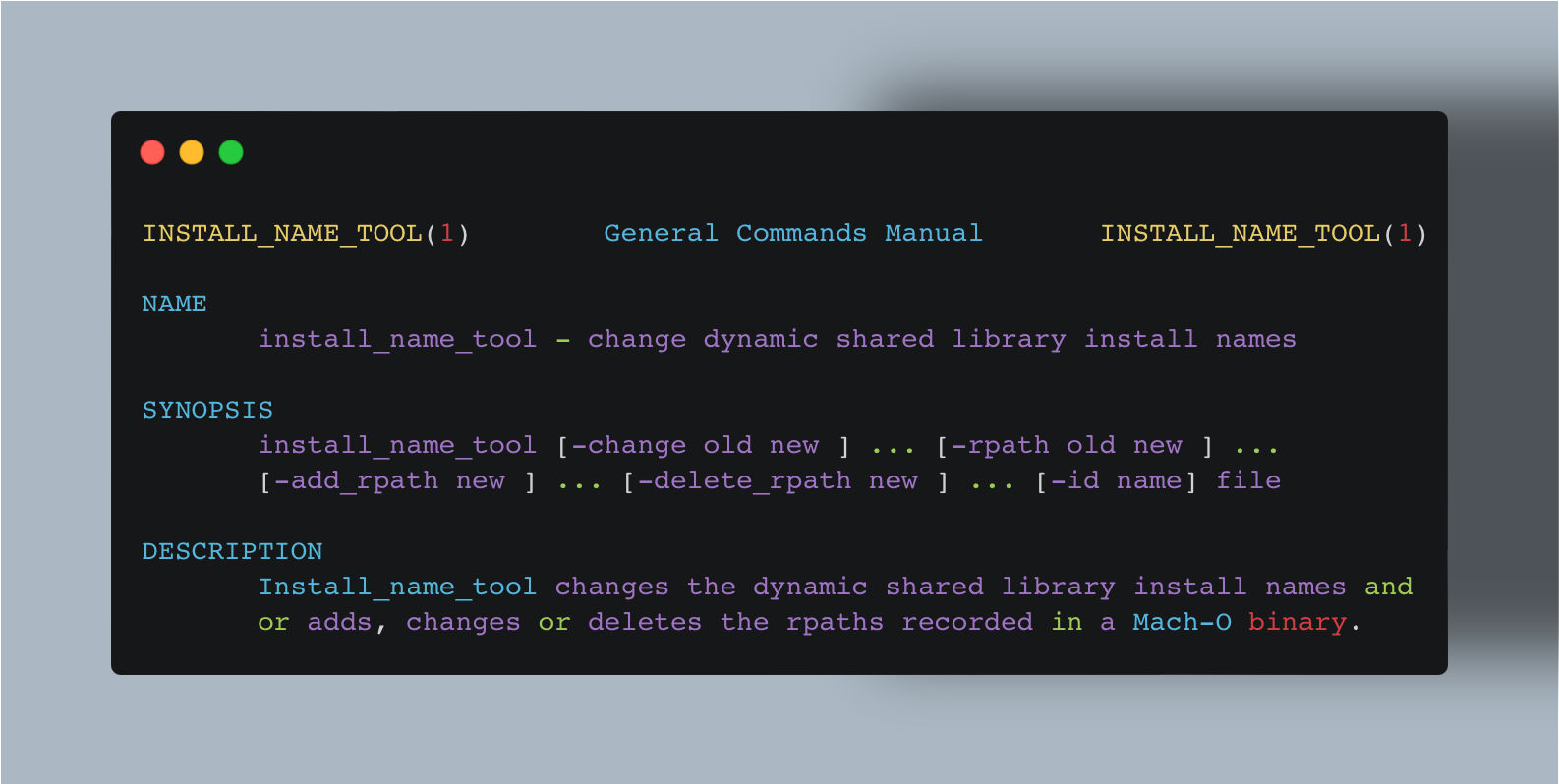While working on moving an internal command line tool to a pure SPM project, I encountered an interesting problem.
We use SwiftSyntax in our CLI tool. Adding the package as a dependency is quite straightforward. SPM also resolves SwiftSyntax’s dependencies as well for us, one of which is a dynamic library, lib_InternalSwiftSyntaxParser.dylib.
The releases for SwiftSyntax are tied to releases of Swift Language itself, as it provides several tools for parsing and transforming Swift code. lib_InternalSwiftSyntaxParser.dylib was bundled with Xcode itself, found under /path_to_Xcode.app/Contents/Developer/Toolchains/XcodeDefault.xctoolchain/usr/lib/swift/macosx. Just like with dynamic frameworks, .dylibs are not compiled into the final binary. Instead, they are added to the RPATH, the runtime search path of your compiled executable. So when your executable runs, it looks for the .dylib/.framework in the specified search path, and then continues its execution.
Now if you are familiar with mac/iOS development, this isn’t a problem for a packaged .ipa/.app App. Because when you ship an app, any 3rd party dynamic framework is copied over to the Frameworks folder in the app, making it convenient to ship libraries de-coupled from the main app executable, but still accessible within the app’s bundle.

So why can’t we pull the same off with a CLI tool? What happens if you try to distribute it? Your users will be greeted with this message:
dyld: Library not loaded: @rpath/lib_InternalSwiftSyntaxParser.dylib
Because the path against which your executable was linked against would simply not exist elsewhere. A CLI tool written in Swift is just a UNIX executable. There is no package which wraps it. While you can ship both the framework/dylib and the main executable together, and it would still work as long as they are in the same folder, it’s far from ideal. Futhermore, this makes it complicated to use a package manager like Homebrew to ship your CLI tool.
This would be an easy fix if we could get a static library version of lib_InternalSwiftSyntaxParser.dylib, since you could just embed it in your final binary. Sadly, it was not shipped separately. However, what I did know for certain is that our tool would be run on machines which had Xcode installed. What if, I could extract the path to the dylib, and somehow add it to our CLI tool’s RPATH, so that dyld finds the library at runtime?
Locating the path to the Xcode installation is straightforward. Running xcode-select -p gives:
/Applications/Xcode.app/Contents/Developer #Or any other path where you have installed Xcode
Alright, so assuming we ship a compiled binary, and can add a post-install instruction with it (eg, running a custom script), we can install our binary on any machine, and extract the installation path to Xcode. But how do I update the Runtime Search Path for our executable? Enter install_name_tool:

install_name_tool can modify the search paths in a MACH-O binary. So, running a post-install script like this one looks for the Xcode installation on the end-user’s machines, and adds its path to RPATH 🚀:
#!/bin/sh
XCODEPATH=$(xcode-select -p)
LIBSYNTAXPATH=$XCODEPATH/Toolchains/XcodeDefault.xctoolchain/usr/lib/swift/macosx/
if [ -z "$XCODEPATH" ] ; then
echo "Xcode not installed. Please install Xcode to continue."
# remove installed binary (sonar) as well
rm -rf sonar
exit -1
else
echo "Setting Xcode Toolchain path for sonar"
#### install_name_tool ######
install_name_tool -add_rpath $LIBSYNTAXPATH sonar
fi
Epilogue
install_name_tool served me well. However, SwiftSyntax now provides a standalone .framework for lib_InternalSwiftSyntaxParser, instead of relying on Xcode.
Also, there is now a distribution of lib_InternalSwiftSyntaxParser.dylib built statically, which allowed embedding the entirety of this library within the executable. I ended up using it in favour of messing around with RPATH after installation.
All that said, it was fun figuring out these details. If you want to read more about RPATH and install_name_tool, I recommend checking out this excellent blog post by Marcin Krzyżanowski.
